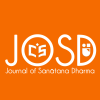What is history if it is written by the conqueror? What is a civilization if it forgets its own past? Bhārata is not just a nation—it is a civilizational continuum, stretching from the Vedic dawn to the present, from the Sarasvatī-Sindhu culture to the Mauryas, Guptas, Vijayanagara, Marathas, and beyond. Unlike the linear historical models imposed by the West, Bhārata’s past is cyclic, layered, and deeply interconnected with its dharmic worldview. It is a history of resilience, adaptation, and continuity, despite repeated invasions and colonial distortions.
This section of the Journal of Sanatana Dharma seeks to reclaim, reinterpret, and decolonize the history of Bhārata. How do we counter the Eurocentric narrative that dismisses Bhārata’s achievements while glorifying its invaders? How do we challenge the false constructs of an “Aryan Invasion,” “caste oppression,” or “stagnant medieval India” that have shaped mainstream historiography? Can we realign Indian history with its own frameworks—rooted in Itihāsa, Purāṇas, and indigenous knowledge systems?
We invite contributions on:
- The indigenous origins of the Vedic and Sindhu-Sarasvatī civilizations
- Decolonizing Indian historiography: Western distortions and counterarguments
- The continuity of dharmic institutions and knowledge systems through millennia
- Political and economic structures in ancient and medieval Bhārata
- Civilizational resilience: How Bhārata endured invasions and colonial rule
- Contributions of Indian mathematics, astronomy, medicine, and governance to world history
- The role of temples, Gurukulas, and traditional education in preserving cultural memory
- Bharatiya resistance movements against Islamic and British colonial rule
- The distortion of Bhārata’s history in colonial academia and its impact on modern narratives
- Restoring historical consciousness: The need for indigenous perspectives in textbooks and public discourse
We welcome scholarly articles, critical essays, and research that seek to restore the true history of Bhārata—not as a passive recipient of foreign influences but as an ancient yet ever-evolving civilization that has shaped and continues to shape the destiny of humanity.
